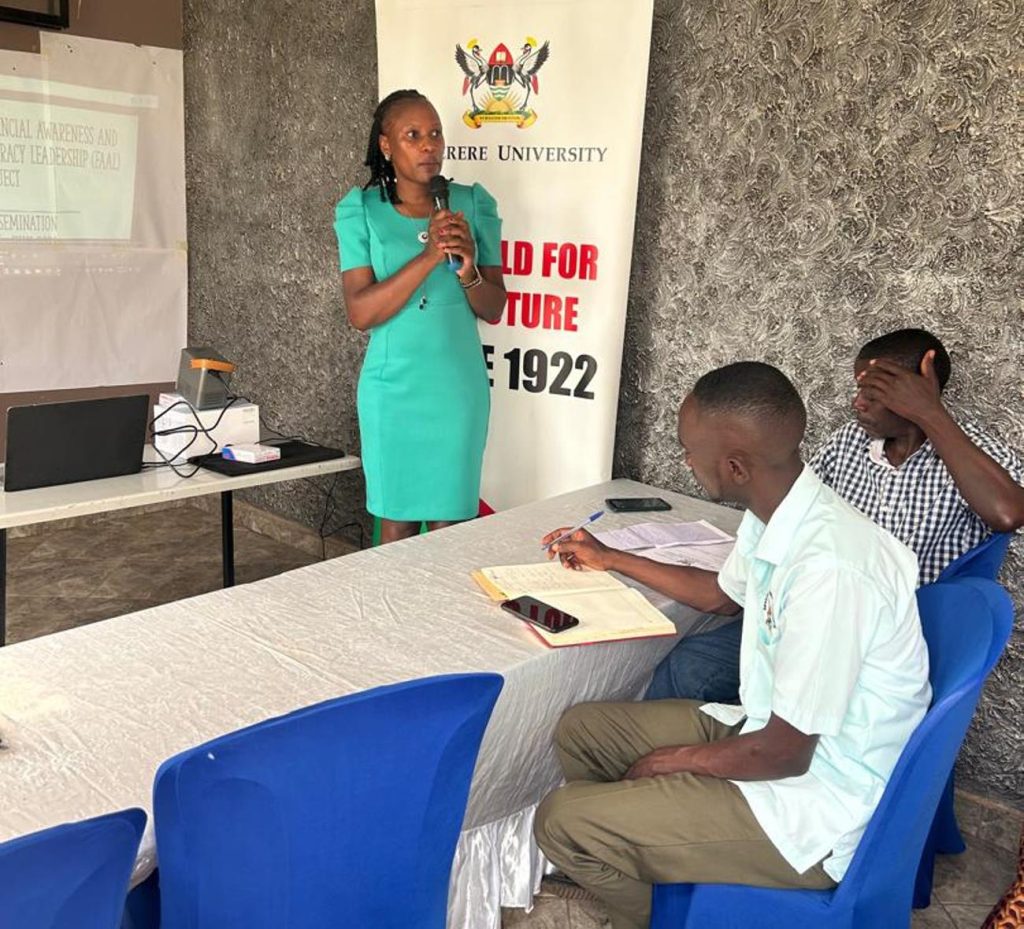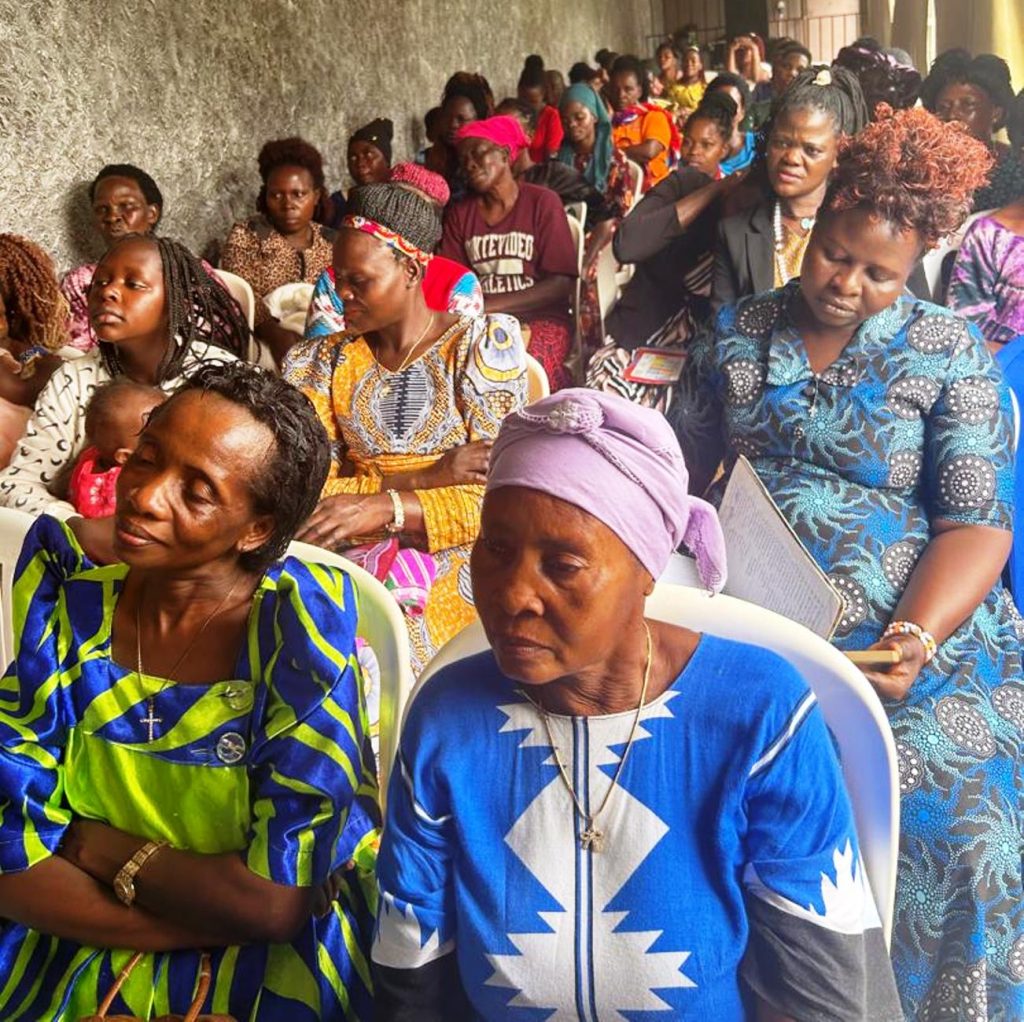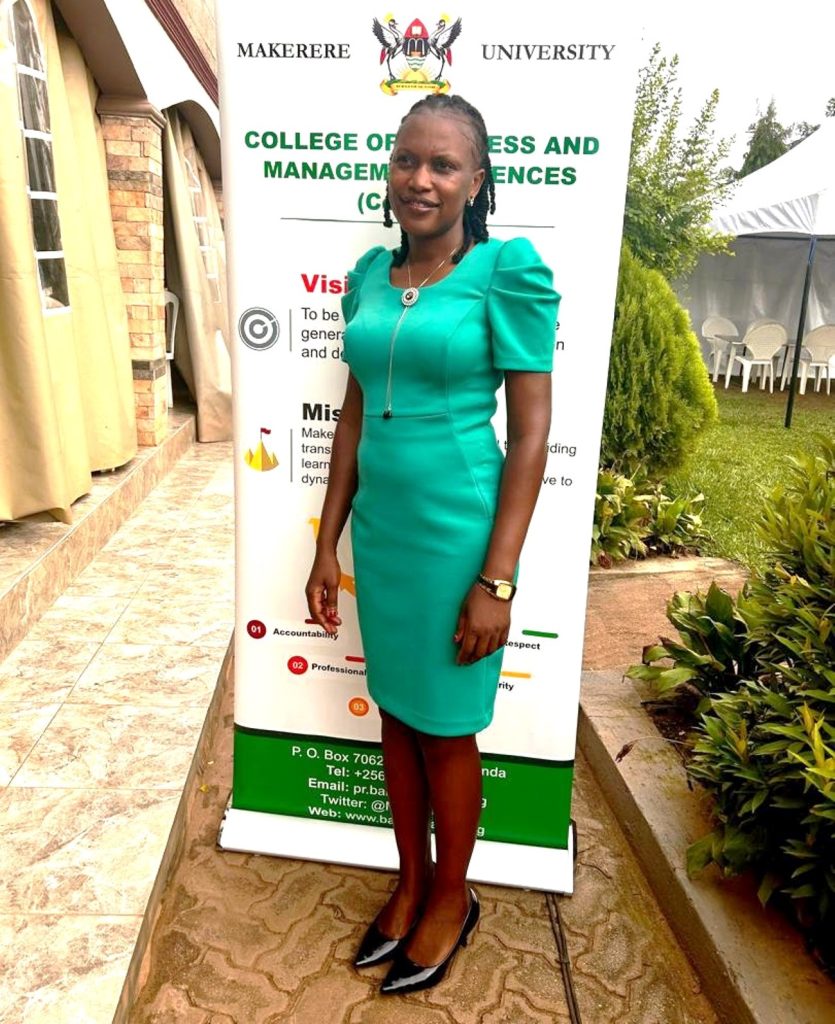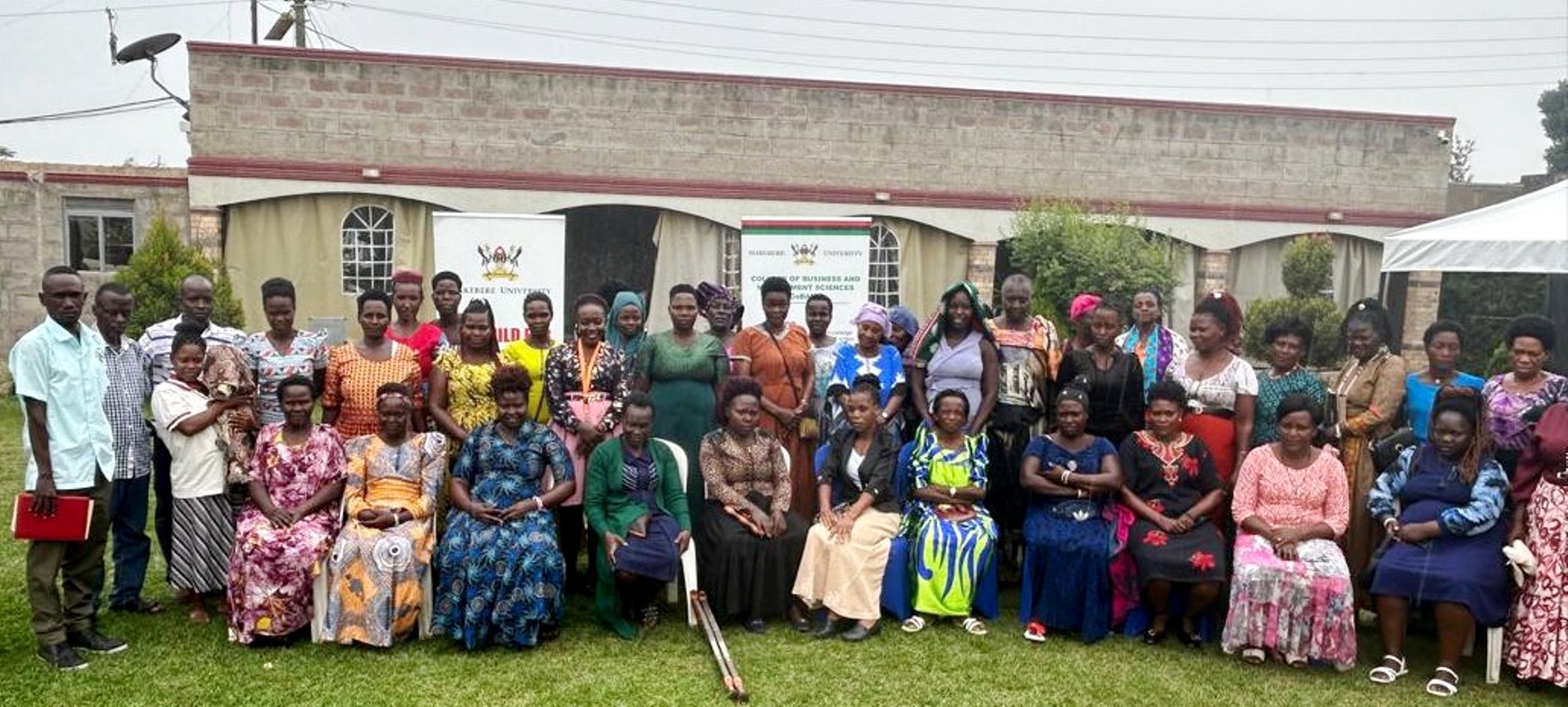Introduction
In the heart of Luweero District, a transformative initiative is making waves, empowering rural women with the knowledge and skills needed to achieve financial independence. On July 31, 2024, the Financial Awareness and Literacy Leadership (FAAL) project led by Dr. Hellen Namawejje from the Department of Statistical Methods and Actuarial Sciences held a dissemination event to share its findings and celebrate the success of its efforts. The event brought together a diverse group of stakeholders, including local leaders, community members, and the very women whose lives have been touched by the project.

A Community United
The event was a testament to the power of community and collaboration. Dignitaries such as the District Deputy Mayor Prince Juuko Patrick, the Semuto SACCO Manager, the Community District Officer, and three chairpersons from the study villages were in attendance, alongside over 50 women participants. The atmosphere was one of hope and excitement, as stakeholders gathered to discuss the impact of financial literacy on rural women’s lives.

Prince Juuko Patrick, the District Deputy Mayor, inaugurated the event with a message of gratitude and encouragement. He praised the FAAL project for its dedication to improving financial literacy and urged the attendees to apply the insights gained to better their financial well-being. Other stakeholders echoed his sentiments, highlighting the critical role of financial education in fostering economic independence and community development.
Study Objectives and Key Findings
The primary aim of the FAAL project was to assess the financial awareness and literacy levels among rural women in Luweero District. The study included a comprehensive needs assessment, financial literacy training, and efforts to connect women farmers with various local associations, including healthcare, insurance, agricultural, banking, and women’s associations.
Key Findings:
- Financial Literacy Training: The training programs significantly enhanced participants’ abilities to make informed financial decisions regarding budgeting, saving, spending, and investing. This improvement is poised to elevate their standards of living over time.
- Financial Education: The study underscored the importance of accessible financial education at all life stages. It also revealed that business ownership and financial influence from family and school are vital in boosting financial literacy among rural women.
- Role of Associations: Membership in village savings and loan associations (VSLA) and Savings and Credit Cooperative Organizations (SACCOs) was found to be positively associated with higher financial literacy levels.
Recommendations for the Future
Based on the study’s findings, the FAAL project put forward several key recommendations:
- Continuous Training Programs: Implement ongoing financial literacy training to sustain and build upon the skills acquired by the women.
- Community-Level Financial Literacy Curriculum: Introduce a structured financial literacy curriculum at the community level to ensure consistent and comprehensive education.
- Community Sensitization: Raise awareness about government initiatives related to financial literacy and empowerment to enhance community engagement and participation.
- Encourage Family Financial Education: Promote the teaching of financial matters within families to instill good financial habits in children from an early age.
Transformative Impact
The FAAL project highlights the profound impact that financial education can have on rural women, empowering them to achieve greater economic independence. By equipping them with the necessary skills and knowledge, these women are better positioned to support themselves, their families, and their communities.

Speaking on the sidelines of the training, Dr. Namawejje appreciated the support of the Carnegie Corporation of New York through the Future Africa Research Leadership Fellowship (FAR-LeaF) at the University of Pretoria for the support. She appreciated her mentor Prof. Bruno Yawe for his invaluable guidance and support.
Conclusion
The dissemination event in Luweero District was more than just a presentation of findings; it was a celebration of progress and a call to action. The FAAL project serves as a beacon of hope, demonstrating that with the right support and education, rural women can transcend financial barriers and contribute significantly to their communities’ development. As Uganda continues to embrace initiatives like FAAL, the future looks brighter for rural women striving for financial independence and a better quality of life.

